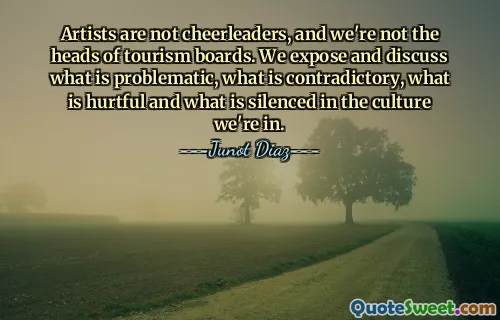What kind of God is it who's upset by a cartoon in Danish?
In his commentary, Salman Rushdie raises a provocative question about the nature of God. He expresses disbelief that a supreme being would be offended by something as trivial as a cartoon created in Denmark. This reflects a broader critique of the extreme reactions that depictions of religious figures can provoke in certain communities, suggesting that such responses indicate a fragile faith.
Rushdie's statement challenges the validity of defending dogma through violence or outrage. He invites a reflection on the idea that a true understanding of God would not require the divine to be emotionally disturbed by human expressions such as art or satire. This insight presents a dilemma about the intersection of faith, freedom of expression, and the reactions such expressions may elicit in different cultures.








